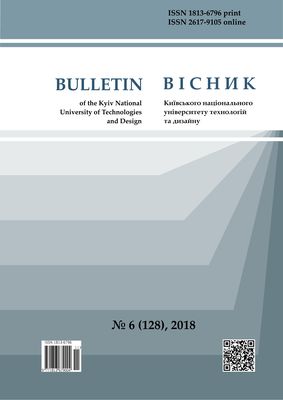POLYMER-POLYMER COMPOSITE BASED ON WASTE EVA
DOI:
https://doi.org/10.30857/1813-6796.2018.6.7Keywords:
polyvinyl chloride, EVA, mixed waste, grinding, polymer-polymer compositeAbstract
Development of technology for the processing of cross liked EVA waste, followed by the use of polymer / polymer composite PVC / EVA as a filler. Method. The determination of the MFI was carried out in accordance with ISO 1133: 1997 on a capillary viscometer of constant pressure at a temperature of (190 ± 0,5) ° С and a weight of 2,16 kg. The thermostability and melting point are determined using the RM-200C Hapro rheometer plastograph. The mechanical properties were determined on a bursting machine according to the ASTM D638. Hardness - using a hard-gauge with a Shore-D scale, the density by hydrostatic weighing method on the analytical scales RADWAG AS-X2. Selected equipment for shredding and further processing of sewed EVA waste. Waste was subjected to rolling after treatment with a plasticizer (stearic acid) at 130-140 °C. The resulting compact mass was sprayed. The properties of the resulting PVC film, filled with cross liked EVA, were determined. The strength of this film compared with the classical recipe is lower, but when using such materials in the composition can obtain a material with high physical and mechanical properties and, of course, achieve maximum non-waste production, which also has a positive impact on the economy of the enterprise. Scientific novelty. For the first time, the technology of using waste cross liked EVA as a filler for plasticized PVC has been developed. The peculiarities of physical and mechanical properties of the receivedcompositions are established. Practical meaning. The developed technology allows to provide non-waste production of EVA
products at enterprises.
Downloads
Download data is not yet available.
Downloads
Published
2019-04-09
Issue
Section
Chemical, Biological & Pharmaceutical Technologies

